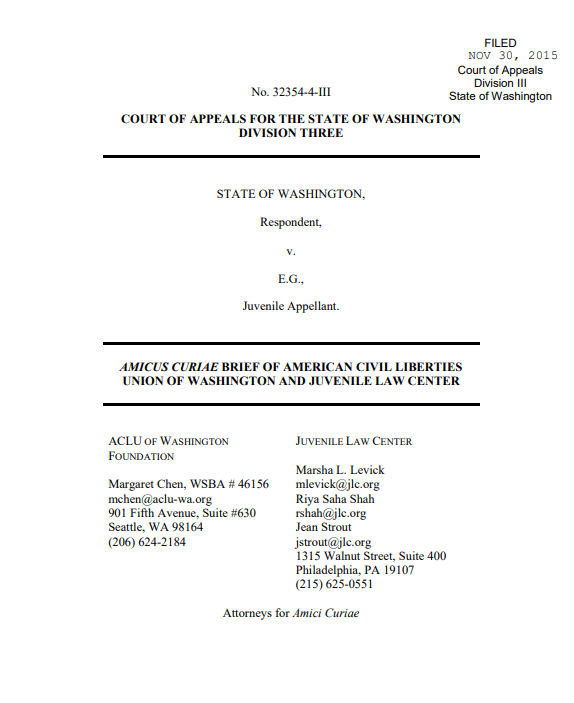
Summary of Argument
E.G.'s conviction cannot stand because it rests on an absurd interpretation of the child pornography statute. The legislative history and purpose of child pornography laws demonstrate the law’s protective intent. The purpose of Washington’s sexual exploitation statute does not support charging or convicting E.G. for distribution of child pornography.
The interpretation and application of the child pornography statute to these facts contravenes the rehabilitative purposes of Washington’s juvenile justice system. In contrast to the child pornography statute’s focus on sexual abuse, prosecuting teenage sexting criminalizes normative adolescent exploration of sexual identity and relationships.
The registration consequences of convicting E.G. of felony child pornography further demonstrate the absurdity of the lower court’s interpretation. E.G. would have to comply with extensive and onerous registration requirements, noncompliance with which would subject E.G. to additional criminal consequences. E.G.’s registration information may be disseminated to members of the public, impacting his integration into society as an adult. If required to register, E.G. would be subjected to the lifelong consequence of being perceived as a dangerous sex offender.